Are you looking to boost your T3 thyroid hormone levels?
Maybe you know that T3 is responsible for managing your energy levels, or maybe you know how important it is for your metabolism.
Either way, there are several T3 supplements that you can use to increase serum T3 levels.
Use this guide to help you improve your thyroid function and increase the T3 in your body.
Let’s dive in:
What Are T3 Supplements?
T3 is the active thyroid hormone in your body.
It is known as triiodothyronine and should not be confused with T4 which is known as thyroxine.
When referring to thyroid hormones, it’s easier to refer to them as either T3 or T4.
But what’s the difference between T3 and T4?
T3 is the active thyroid hormone in your body.
That means T3 is responsible for ALL of the effects that thyroid hormone is involved within your body:
- Increased mitochondrial function (1)
- Increased basal metabolic rate (2)
- Increased muscle mass production (3)
- Increased body temperature (4)
- Increased enzymatic function (5)
- Increased hair growth (6)
- Increased energy levels (7)
- The list goes on… (thyroid hormone is a major regulator of MANY functions in the body)
After reading this list, it should be obvious why you would want to boost your T3 levels, right?
And we are going to talk about how to supplement with T3 both naturally and with medications, but we are getting ahead of ourselves.
Why is T3 different than T4?
T4 is the STORAGE form of thyroid hormone in your body.
T4 by itself doesn’t have any activity but instead acts as a reservoir source for T3 thyroid hormone.
Your body holds onto T4 thyroid hormone in the body and can convert T4 into T3 (by knocking off an iodine moiety) to active thyroid hormone.
Your body does this to allow for the exact amount of thyroid hormone in the right tissue at the right time.
It’s an evolutionary mechanism that works well… when it is working.
In order for this process to work correctly, you need to have adequate amounts of T4 thyroid hormone and you need perfect T4 to T3 conversion.
Unfortunately, many things interfere with both of these processes, which is why boosting your T3 may be necessary and helpful.
So where do T3 supplements fit in?
It turns out that you can take targeted supplements to BOOST or increase your T3 levels in the blood and in your body.
Boosting T3 levels allows for MORE of the positive effects listed above (more weight loss, more energy, more hair growth, etc.).
But how do you do it?
Increasing T3 with Zinc and Selenium
You have a couple of options if you want to boost your T3 levels.
First:
You can boost the conversion process we touched on above.
If you have adequate amounts of T4 in your serum, then boosting the conversion will help liberate more T3 and more active thyroid hormones.
But in order for this step to work you need to have adequate amounts of T4 thyroid hormone reservoir in the body.
This leads us to the second option:
You can boost your total amount of thyroid hormone directly.
Many factors and nutrients are involved in thyroid hormone production (many nutrients that you may be deficient in).
By taking targeted supplements you can provide the right substrate to your body which will allow for optimal thyroid hormone production.
In reality, if you are serious about your thyroid function, you will probably want to do both simultaneously.
There is also a third way to increase your T3…
You can simply take T3 thyroid medication (note that this is a prescription medication that will require a doctor’s prescription).
This is obviously the easiest way to boost T3 thyroid hormone in your body, but it is not without side effects and it is something we will touch on later in this post.
T4 to T3 Conversion & Its Impact on T3
So how do you boost thyroid hormone conversion?
In this section you will really want to focus on 2 things:
1) Boosting T4 to T3 conversion (8)
And
2) Increased cellular sensitivity to the nuclear thyroid hormone receptor (9)
You can see a complete outline of what happens from the time that thyroid hormone is produced from your thyroid gland till the time that it hits the nucleus of your cell and activates genetic transcription (alters genetic function).

This image should give you a great idea of what we are going to focus on here, but let me also add a bit of clinical experience to help guide you in your supplementation.
The first thing you may notice is that there are several supplements that can help boost T4 to T3 conversion:
Namely zinc and selenium.
Zinc is a micronutrient that MANY patients are deficient in.
So supplementing with zinc is particularly helpful (especially if you don’t eat an organic, whole food-based diet).
Zinc is a potent anti-inflammatory agent (10), can help balance the immune system (11), and is required for optimal hair/nail growth.
Supplementing with zinc is a great idea to boost your thyroid conversion (12) but you should take a couple of notes when considering supplementation:
1) Make sure that you are taking a high enough dose.
2) Make sure that you are taking the right form of zinc.
3) Make sure that you take it in tandem with other supplements and for a long enough length of time.
When supplementing with zinc you will want to use 30-60mg per day.
You will want to make sure that your zinc is bound to picolinic acid because this form is highly absorbable.
And you will want to make sure you are taking it for at least 3+ months to ensure tissue level saturation.
Much like zinc, selenium is also a micronutrient that many patients are deficient in.
And again, much like zinc, selenium can help boost T4 to T3 conversion.
But selenium is also quite potent at balancing the immune system, especially in patients who already have thyroid issues – especially Hashimoto’s thyroiditis.
Taking selenium, especially with zinc and iodine, can help improve the function of your thyroid, boost conversion and help promote proper thyroid hormone production (13).
When considering selenium supplementation consider these points:
1) You should be supplementing at a dose of 100-200mcg per day.
2) Your selenium should be bound to methionine for superior absorption.
3) If you are taking iodine you should also take it with selenium (preferably in a combined supplement).
4) Take both zinc and selenium for at least 3+ months and together if possible.
You can find a combination of zinc and selenium in the right doses in this supplement.
If you use my recommended product and brand it contains both zinc plus selenium along with other nutrients that have been shown to help with thyroid hormone conversion, biosynthesis, and cellular sensitivity.
Inflammation and Its Impact on T3
You may have noticed that other factors (aside from supplementation) can alter thyroid hormone conversion.
What I am referring to here is inflammation:
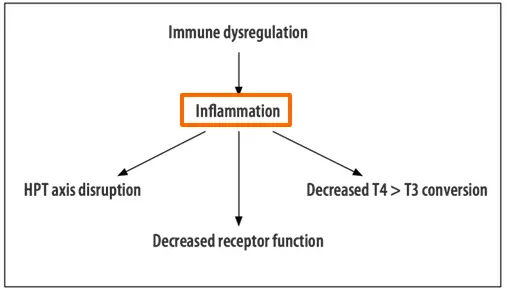
Inflammation will directly reduce your T4 to T3 conversion (14), even in the face of taking supplements like zinc and selenium.
I only mentioned it here because if you are serious about boosting your T3 levels then you need to make sure that you manage inflammatory levels.
Reducing your inflammation can range from easy to complex but either way, some basic rules still apply:
- Make sure that you are eating an inflammatory, whole food-based diet
- Make sure that you are taking anti-inflammatory supplements
- Make sure that your gender-specific sex hormone are balanced (that means testosterone, estrogen, and progesterone)
- Make sure that your insulin and leptin levels are under control
All of these factors influence inflammation and may alter your thyroid hormone conversion (and interfere with other functions in your body).
Increasing T3 Levels Directly from the Thyroid Gland
Another way to promote higher T3 levels is to increase thyroid hormone production from the thyroid gland.
You can see from the image above that at least 13 nutrients are required for proper thyroid hormone production.
Each step of thyroid hormone creation requires these nutrients.
But several of them tend to be more important than others, and those are the ones that we are going to discuss in this section.
The only downside to improving thyroid hormone production is that you have less control over what your body will produce.
What that means is that you can’t specifically target the production of T3 thyroid hormone.
Instead, by taking these supplements, you will most likely increase BOTH T4 and T3 thyroid hormone levels.
Because of this, it’s usually almost always beneficial to simultaneously take medications that increase T4 to T3 conversion as you boost both thyroid hormone levels in the body.
But which supplements should you take to boost thyroid hormone production?
In my experience these are the nutrients that work best:
I chose these supplements for the following reason:
1) Why Iodine?
Iodine is a critical component of thyroid hormone production. In fact, the difference between T4 and T3 is due to the iodine moiety.
So 3 iodine molecules are required for the creation of T3 thyroid hormone.
But here’s one of the main benefits of using Iodine.
Not only is iodine required for proper thyroid hormone production, but it’s also commonly displaced by other halides that humans come into contact with.
These halides share the same number of electrons on their outer shell which means that from a polarity standpoint they can actually knock off iodine moieties and blunt the effectiveness of thyroid hormone in the body.
The halides I am talking about include bromide, chloride, and fluoride.
Bromide is in various foods that we eat such as bread and even soda.
There have even been case studies showing bromide toxicity (15) from consuming too many of these foods.
Fluoride is in fluoridated water (which you consume if you are drinking tap water).
Studies have shown reduced T3 levels and altered TSH (16) levels in patients drinking fluoridated water.

The point is that these halides can compete for binding with iodine and interfere with thyroid hormone function.
So how does iodine fit in here?
Increasing the levels of iodine in your serum will cause preferential binding of iodine over these halides and restore the functionality of your thyroid hormone.
Displacing these halides may result in symptoms such as bromoderma, however which is why I recommend taking selenium in combination with iodine if you choose to use this supplement.
How to use Iodine:
I recommend using this supplement and starting with 1 drop per day.
As tolerated you can increase the dose up to 12.5mg per day.
2) Why Vitamin A & Vitamin E?
Vitamin A and Vitamin E are both fat-soluble vitamins (17).
Fat-soluble nutrients are critical to multiple functions (including cellular functions) and are commonly found in nutritional foods.
Unfortunately, with the standard American diet (18), many patients have suboptimal fat-soluble vitamins.
As a result, supplementing with these fat-soluble vitamins is necessary and helpful in the right amount.
Vitamin A is particularly helpful because it can help promote cellular sensitivity to thyroid hormone in addition to being required for proper thyroid hormone production.
How to use Vitamin E & Vitamin A:
Vitamin E – start with 1-2 capsules per day (take with a fatty meal to increase absorption).
Vitamin A – Use 1 drop per day (about 5,000 IU) in a micellized form to increase absorption.
3) Why iron?
Lastly, I wanted to give an honorable mention to Iron.
Iron is required for proper thyroid hormone production BUT it is required in *just the right amount, which is why it is marked with an asterisk.
Before supplementing with iron I recommend that you read this post in detail to make sure that you are indeed suboptimal.
Replacing iron can dramatically improve thyroid function and reduce the symptoms of hypothyroidism so it is certainly worth evaluating your levels.
As recommended above, for optimal results, make sure you combine these supplement classes together to boost thyroid hormone conversion, thyroid hormone production and increase cellular sensitivity to thyroid hormone as well.
Will T3 Supplements Help You Lose Weight?
One of the main reasons that people want to know about T3 supplements is because of their effect on metabolism and, therefore, weight.
T3 thyroid hormone has a major influence on basal metabolic rate and, therefore, your resting metabolic rate or resting energy expenditure.
What you may not realize is that when it comes to weight loss there is no greater factor in determining how much weight you will lose than your metabolism.
Exercise by itself only accounts for a fraction of your total daily caloric burn.
Compare that to your resting metabolism which represents about 90% of your total energy expenditure in the form of calories.
And T3 directly influences this number through its metabolic effects on your mitochondria.
Your mitochondria create the majority of energy in the form of ATP for each of your cells, and this energy production is important to produce muscle contraction, etc. which results in caloric burn.
So to answer the question – do T3 supplements help with weight loss, the answer is yes and maybe.
If you have nutrient deficiencies, or if your thyroid function is suboptimal then yes these supplements can help boost your metabolism and help with weight loss.
If weight loss is your goal then supplementing directly with T3 thyroid hormone is often more potent than using just supplements alone (really they should all be used together, however).
We will discuss how and when to consider using T3 medication below.
Do T3 Supplements Have Side Effects?
The good news about supplementing with the nutrients listed above is that they are generally VERY well tolerated.
While they tend to be somewhat less potent than T3-containing prescription medications, they are very well tolerated and often do not carry any side effects.
Most side effects can be attributed to an intestinal intolerance (GI upset) which is readily fixed by taking these nutrients with meals.
T3 thyroid hormone prescriptions, on the other hand, tend to have other side effects if not used correctly.
Increasing T3 with Prescription T3 Thyroid Medications
Another way that you can supplement with T3 thyroid hormone is by directly taking the T3 thyroid hormone itself.
This T3 thyroid hormone is available in prescription form from your Doctor (compared to the supplements and nutrients listed above which are available over the counter).
Generally speaking, the more tightly regulated the supplement or medication then the more potent or efficacious it is.
Supplementing directly with T3 thyroid hormone is probably the most effective way to increase your T3 levels, but it can also be difficult to acquire from your regular physician.
This is mostly because providers aren’t willing to prescribe T3-containing medications and are not comfortable or used to prescribing these medications.
Having said that, you should still understand the basics of T3 thyroid hormone if you consider supplementing.
Cytomel/Liothyronine
Cytomel and liothyronine are what I consider to be immediate-release formulations of T3 thyroid hormone.
These medications should be differentiated from other forms of thyroid hormone like levothyroxine and Synthroid which contain T4-only thyroid hormone.
These medications are rapidly absorbed and usually reach peak serum levels within 2-3 hours of ingestion.
Occasionally patients do not respond well to these forms of T3 due to the serum rush of T3 and its effects on myocardial heart tissue.
T3 directly stimulates the calcium channels in your cardiac tissues which may lead to increased force and rate of contraction leading to the symptoms of heart palpitations or tachycardia.
Usually, by simply delaying the release of T3 thyroid hormone into the serum you can avoid these negative side effects…
Sustained release T3
Sustained release T3 represents T3 thyroid hormone that is bound to a glue-like substance known as cellulose.
The cellulose delays the absorption of T3 into the body effectively creating a “time-released” or “sustained release” preparation of T3 thyroid hormone.
Some patients don’t do well on SR T3 formulations due to the delayed absorption which may effectively reduce the total dose received of thyroid hormone.
SR T3 must be acquired from a compounding pharmacy and is a prescription medication.
Natural Desiccated thyroid hormone
T3 thyroid hormone is also found in smaller doses in the prescription medication of Natural desiccated thyroid hormone (NDT).
NDT contains both T4 and T3 thyroid hormone which makes it less effective for weight loss and increasing metabolism than T3 alone, but it will be mentioned here for completeness.
Prescription T3 medication side effects
Because T3 medications provide T3 thyroid hormone directly they may cause symptoms.
The most common symptoms of T3 supplementation include:
- Heart palpitations
- Rapid heart rate
- Jittery sensation
- Temporary hair loss
- Flushing sensation
- Warm body temperature
- Hot flashes
These symptoms usually occur as a result of too much T3 thyroid hormone in the serum and may be a result of “flooding” the system.
Usually by simply delaying the rate at which the T3 is absorbed many of these symptoms will subside over time.
While using T3 supplements it’s best to monitor both your resting heart rate and basal body temperature to gauge just how well your body is tolerating the medication/supplement.
If your body temperature and heart rate increase beyond 80 beats per minute or more than 98.6 degrees F, then that is an indication that your dose is too high.
You can learn more about how to use Cytomel and liothyronine in this post (especially if you are interested in weight loss).
Recap & Final thoughts
T3 supplements can help boost your metabolism, increase weight loss and help improve your thyroid function.
Having said that it is important to realize HOW and WHEN to use these supplements to boost your thyroid function.
Using targeted supplements can help improve your T4 to T3 conversion and improve the production of thyroid hormone in your body leading to higher T3 levels.
On the other hand, you can also directly add T3 thyroid hormone to your regimen in the form of prescription medication.
T3 thyroid supplements tend to be well tolerated when compared to T3 thyroid medications, but both can be used safely as long as your provider knows what they are doing.
Now it’s your turn:
Are you using supplements to boost your T3 levels?
Are they working for you?
Why or why not?
Leave your comments below!
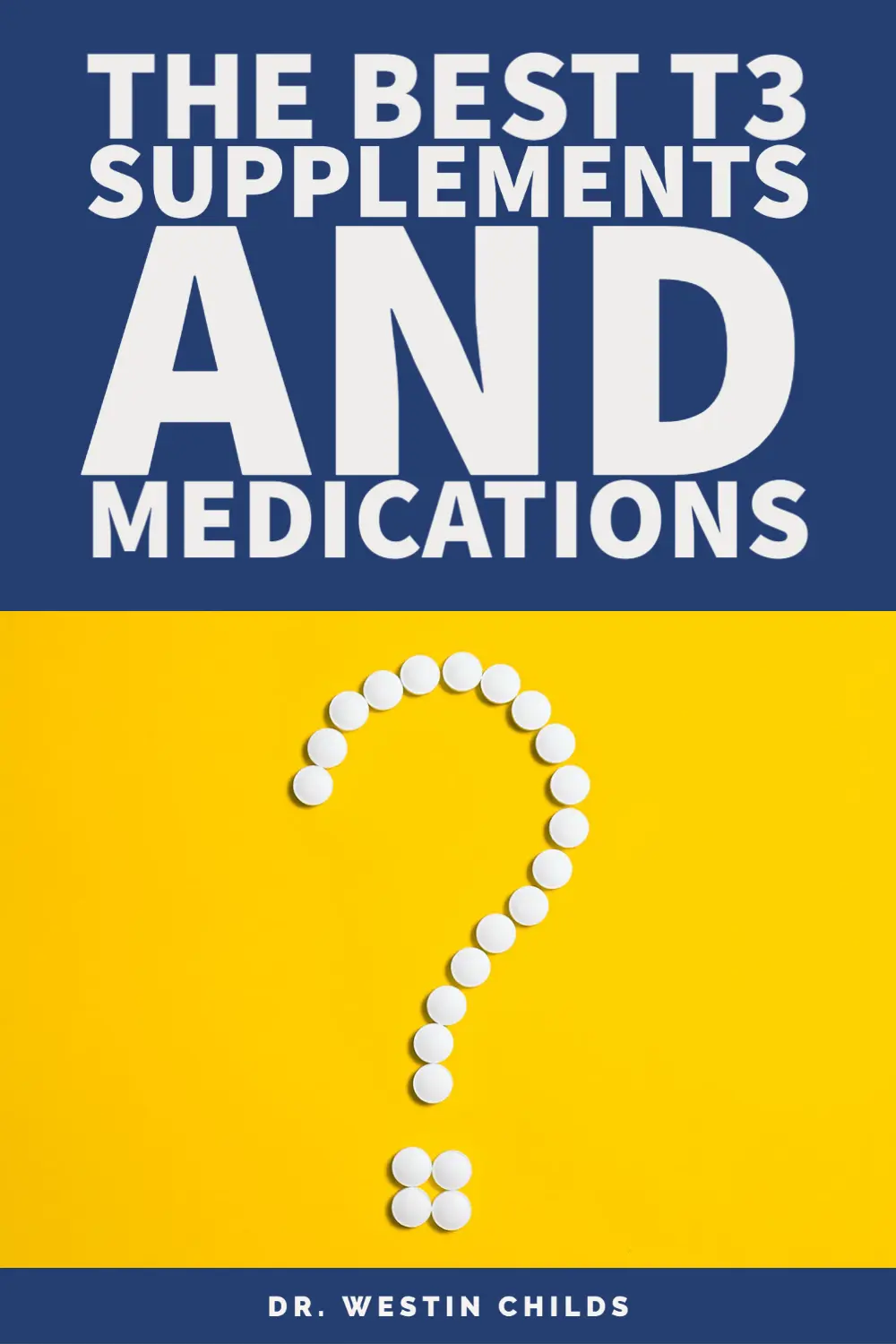
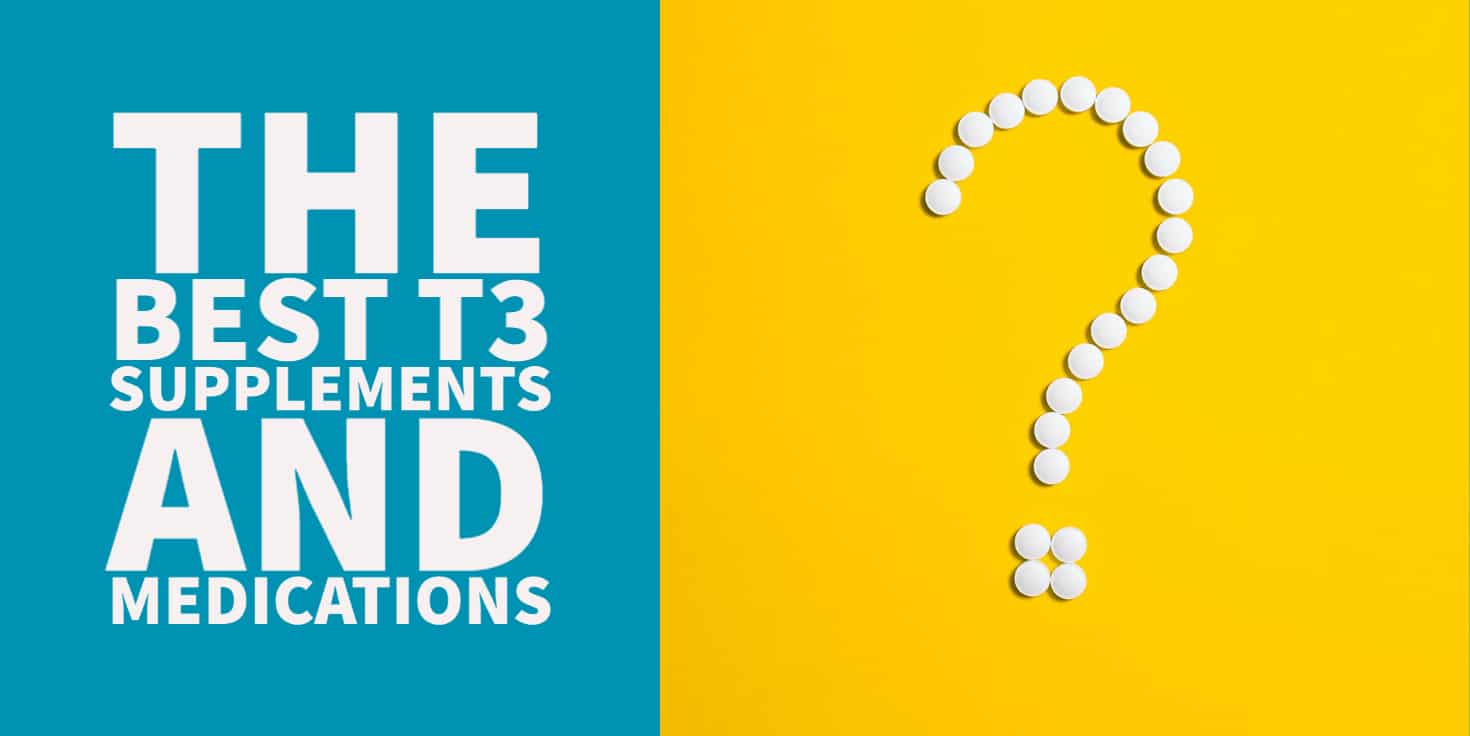

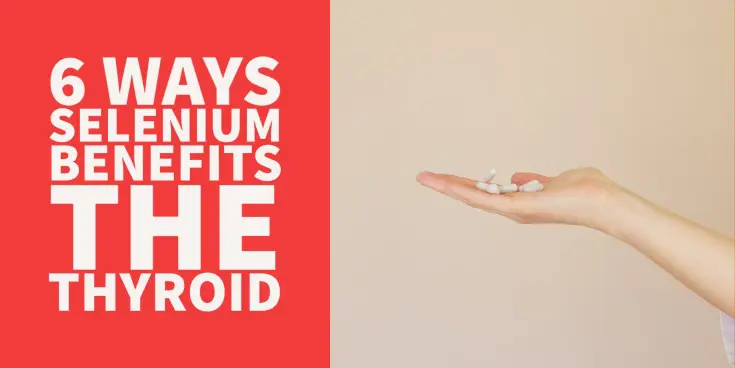
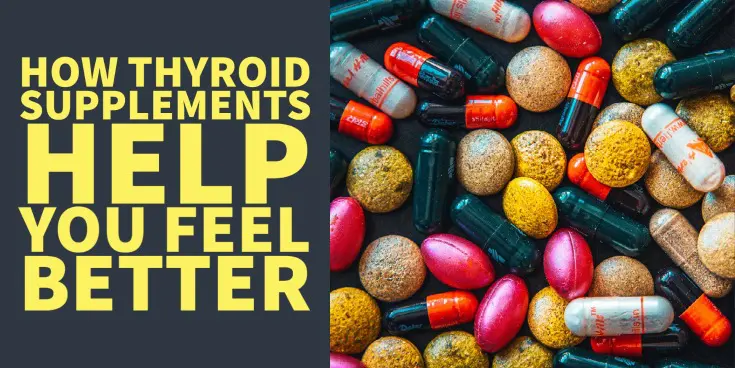

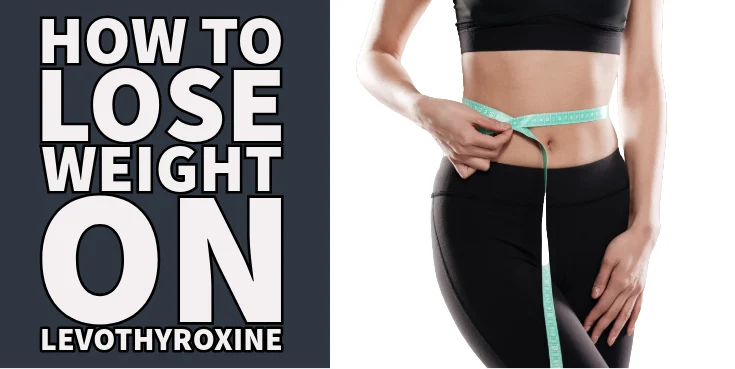
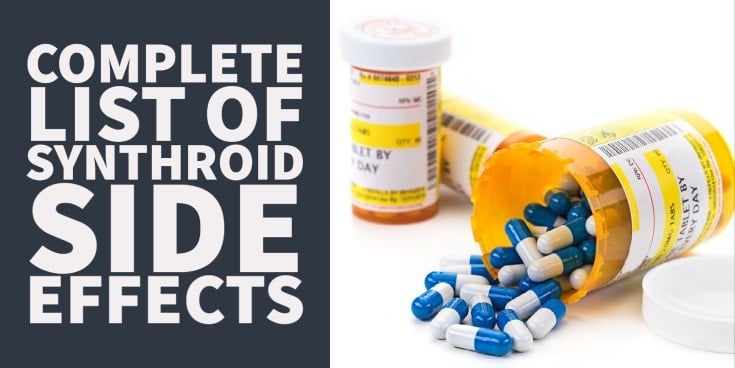

Hi Dr Childs, I loved finding your blog since it’s very helpful!
I have type 1 diabetes (very well controlled) and hypothyroidism since 2 years ago. I was on NTD only until 10 days ago. My Reverse T3 came out 27 and so my dr gave me 30mg daily of SR T3 and reduced my NDT to 1 and 1/2.
Since starting this new medication I’ve gained 2kg, with no changes to my lifestyle and diet. As a consequence, I’ve even reduced my caloric intake (I’ve been having a hard time with food as you can imagine due to this easy weight gain process). I’ve been struggling a lot with easy weight gain in the past 2 years, gained 6 kg in total (but I’m petite).
Is it normal to gain weight at first with T3? Do I have to do something else? I’ve started with Zinc and Selenium too.
I’m lost and puzzled right now and hate getting bigger. Thanks
Hey Michela,
No, usually the addition of T3 should cause weight loss, not weight gain. Occasionally some patients do experience issues with weight gain on T3 however (but this is rare).
What do you recommend me to do then? Any tip to share with my DR?
I gained weight on the T3 as well. Didn’t change my diet or anything else and I exercise 2-3 a week at Boot Camp type of training.
Hi Jackie,
It’s fairly rare but it does happen.
Pharmaceutical t3 makes you hungry. You eat more. Hence weight gain
Hi Rhoda,
That’s an interesting thought but I don’t see the same reaction in all patients so while that certainly may contribute I don’t believe it’s the only mechanism.
I have also experienced severe weight gain with Cytomel (T3). I have tried it with Synthroid and with Armour. Both times 20lbs+ within 6 weeks. Dr says that’s not normal. Well I have had tons of “not normal” on this thyroid journey. It is so frustrating
I can relate to you I’m always being told that’s not normal. But I’m on Armour Thyroid and have been on it for 47 years. I have taken synthroid but after time it just sits in my system. I’ve been to endocrinologist, internal doctors, naturopath, NP, and family doctors. No one where I live wants to help me. I weigh more now than I ever have. I’ve excercised, lifted weights, run, done Jazzercise., walked you name it I have done it. The only thing I lost weight on was a diet pill. I’m 60 years old now and I guess doctors look at me and think she’s old, fat, tired, and looks like he’ll. Oh well. I would like to feel better and be active again. I don’t want to die a fat old lady on oxygen.
Patricia
Good afternoon Dr Childs.
This May 2017, will be 4 years that I went through Thyroid Cancer surgery. I ma a 58 old year woman. In my late twenties back home in Mexico, they have diagnosed me with a Tumor on my left gland, surgery took place, but everything was on time, non cancer at all. Four years ago, I had to go again for thyroid surgery, this time, right gland, diagnosed with papillary carcinoma 3rd stage, what it was left of my thyroid went out plus if i am not mistaken 2 or 3 limphatic glands as well.
I live in southern Ontario, before this surgery, 4 years behind, I donated my left kidney. I was living pretty normal, even with one kidney, always being slim and overall healthy. What doctors in Toronto, Canada did too me four years ago, had totally disrupt my way of living. I have gained so much weight from size 6 I have gone to size 10, and I think I went up close to 20 pounds. I am a fairly active woman for my age, walk my dog couple of times a week, the rest is done by my hubby. I swim once a week and do aqua fitness once a week. live in a two story house i think I go up and down the stairs easy 20 times a day. I am always tire, lack of energy, my kidney function went down a lot after this surgery, plus I eat less of what I used to eat before the thyroid surgery. I am on T4 levothyroxine every other day at .100 mg and the other day at .80 mg. I being having such a difficult time in getting a good endocrinologist that will be able to balance me and helped me with my health situation. My numbers some times are high and some time are low. so they think I am EUROTHYROIDE, no HYPO and not HYPER, how can that be posiible. One more concern I have I do not take any vitamins at all just Vitamin D Rocatrol for the Kidney function, cannot take any calcium, and I am very allergic to noninflammatory. My body in general feels bloated, specially around the stomach and waste area.Since this surgery, I being getting sick more often, with bad colds, lots of cough, fever, my voice gets hoarse to the point I cannot talk at all, total aphonic. My FAMILY DOCTOR told me with the hormones I canot take anything else, because anything I take will kill the function of it.
AN ENT doctor told me my vocal cords have being harmed, after that surgery, and the nerve on the left vocal cord hardly functions is damaged.. So I do know that in Canada you get free Medical Care, but right now to get a second opinion with another Endocrinologist. I have to wait till September, 6 more months like this, I do not know how I be able to handle my body and my health. Sometimes I do feel I am collapsing. Any suggestions about referring with a good ENDOCRINOLOGIST in Southern Ontario.???
Because of all this medical issues, I had to quit my job. Working in customer services, hospitality and sales,has worn me out a lot, and specially my voice gets weaker and weaker every time I catch a cold. So far since November 2016, I being sick like a dog more than 5 times. I do understand I am not a DOCTOR, but I can tell you the way I feel these pills instead of helping me, they are just destroying me slowly.
Thanks for your timing and cooperation regarding this issue. I just know I can not keep living this way.
Sincerely…Patricia
Hey Patricia,
In order to find the care you see me talking about on this blog you will most likely have to look outside of the insurance model (that generally means endo’s and PCP’s won’t be able to help).
Hello Dr. Childs,
I was on Synthroid (175mcg) for 12 years. Finally, got properly diagnosed with Hashimoto’s last week and switched to Nature Throid (1/2 a grain). My rT3 levels are high (27) and I am investigating on my own (using your posts) how to help myself.
Would you recommend I ask my physician for additional T3 medicine to what I am already taking or switch meds completely?
Also, thank you for all of your posts. I have written down so much useful information which no one cared to give me for 12 years.
Hey Tina,
Unfortunately there is no easy answer to you question as it depends on a multitude of factors.
Hi Dr. Childs,
I am currently taking 400mg selenium, 200 zinc, Vit D3 10,000 and liquid Vit B. I have Hashimoto. I would like to start with your T3 conversion booster. Does the conversion booster add to these supplements or replace?
Thanks,
Renee
Hi Renee,
Your safest bet is to probably start with all of them together and then taper off of the added zinc/selenium over 3-4 weeks once you know you are doing well on the T3 conversion booster.
Hi Doctor..
I was on 142 mcg synthroid for a long time, switched to NDT and had horrible midday hot flashes with a crash and had to sleep or lay down from 2-5… saliva tests showed high cortisol during that time from as a correction to sugar dysregulation. Then I ended up having a thyroid storm in December … heart palpitations, insomnia, panic attacks, lost weight fast, fear.. doom feelings… got off ndt… now I’m on 103 mcg tirosint.. 2.5 mcg srt3… in some ways I’m better but now I have neck tension, pressure behind eyes, dizziness and still feel like the T3 is a little hard on my adrenals…. sort of feels like I have “caffeine” induced weakness or hypoglycemia type shakiness.. and now my eyes are acting weird…. although I wasn’t perfect on T4 only noe that I’ve introduced T3 there’s weird things happening…, should I just give this time??? I’ve been on this dose 2 weeks… I can’t decipher wether this is side effects from stressed adrenals or T3
Hi Dr. Childs,
Im 44yo female and found out I had Stage 3 adrenal exhaustion last year through a saliva test kit i ordered. I used pregnenolone, dhea and other adaptogens and just retested and found out my cortisol panel is normal now!!! yay. I did retest the thyroid and my free t3 & t4 went down and my tsh went up from last year despite taking zinc, selenium, iodine etc to assist. I also checked my bbt for 3 weeks and it averaged around 97.1. I just now started naturethroid 1/2 grain and will retest blood test in a month to see results. My question is with the form of zinc I am taking. I am taking the zinc orotate version. Is this a good version specifically for thyroid? If so, do i still take the 30-60mg a day?
Hi Dr. Child’s,
I read your blogs all the time and have found your advise very useful, thank you! I have Hasimotos and am in the middle of menopause. I use most of the recommended supplements for both. Last year my doc switched me to Naturthroid at my request and the results are great! The only issue I have is chronic diahhrea. I was wondering if any of your patients have experienced this FROM the naturthroid and if so did you switch them to something else? I’ve had every test under the sun with no answers and every good elimination and sensitivity test. I’ve removed said culprits and no improvement. I’m missing something I just don’t know what it is and I’m at my wits end. Its interfering with my life. I would appreciate greatly ANY advise…..Thank you!
Hi Dr. Childs,
First of all, thank you so much again for the valuable information on your website. I am making my way through the different articles and videos. Pretty amazing that you take the time and answer all the questions you do. I had asked a question which you replied, so thank you. I now have the latest lab works:
A1C: 5.9
Reverse- 14
T3 Free- 3.1
T4 Free- 1. (.8-1.8)
Thyroglobulin Antibodies 1
TSH 3rd Gen: 1.28
Total T4- 7.6 (4.5-12)
Total T3- 110 (76-181)
Did the body temperature for 10 days. Average was 97.1.. Ranged from 96.8-97.4, but several days at 97.
My Dr. prescribed nature-throid, 32.5 due to low side of Total T3 and temperature. Been taking nature-throid for 10 days. Checking temp, but no change yet, 97. I would guess probably too soon yet to see a change.
Also, I have high sensitivity/reaction to dairy. Is nature-toroid ok to take with dairy problems since it has lactose?
Had Epstein-barr virus about 20 years ago. My stamina and energy have never been the same since even to this day.
Blessings,
Brenda
Hi Dr. Childs, thank you for all of the valuable information. There is no link to the iodine supplement that you suggest above, can you clarify which one you recommend? I am struggling to find a doctor who can help me. I’ve gained 30 lbs in four months and my weight continues to climb. I’ve had everything tested- my total T3 is 63 but the doctors I’ve consulted with don’t see that as a factor in my weight gain. I am confused how total T3 can be so low, and not a contributing factor in the weight gain I am dealing with. My lifestyle and eating are as healthy as possible, so there is something else going on.
Hi Jennifer,
The link to iodine has been fixed, sorry about that.
Also your low T3 is likely contributing to your weight gain and you can read more about it here: https://www.restartmed.com/low-t3/
Hi Dr. Childs,
So the Sustained Release T3 sounds like the best prescription form? I’ve been on WP-Thyroid for some time and the weight fluctuations and inability to lose are crazy.
Thank you!
Hi Lauren,
SR T3 isn’t necessarily the best medication, I would argue that there really isn’t a best thyroid medication as it largely depends on the person.
Hi Dr. Childs,
Great information.
I have tried SR T3, IR T3 they made me tired However I didn’t gain weight.
I am Hypo. due to RAI. I cant Convert T4. T4 causing me high RT3.
Doctors that I use causing me more harm than help.
My new doctor asked me to take 10 mcg T3 an hour before the blood test.
I didn’t want to lie to him and took 5 mcg T3. My T3 came high of course 4.3 my T4 0.1 Tsh 0.277. He raised my T3 from 30mcg a day to 45 mcg. I dont understand.
For next time he asked me to take 15 mcg before the test. I will not do that!
He gave me other tests and didn’t review them with me. May be he cant read them!
He took me off zinc and Iodine and said so many bad things about the Iodine.
So why do we have to suffer because such doctors.
He said that due to the fact that T3 has short life if I
will not take it for 12 hours it will be very low on my test.
It wasn’t so with other tests that I took before.
Hi Tammy,
I don’t know why your Doctor made those recommendations. I would recommend touching base with your physician to understand why they recommended that dosing schedule.
hi,
I am from India, Here I do not get armour thyroid or desicated thyroid
But we do get homeopathy thyroidium 30 which is natural sheep gland,
Its liquid form and cannot know how much mcg I am taking.
But I am taking 2 drops morning/afternoon/evening along with thyronorm 100mcg
my TSH is 5.72
total t3 is 84
total t4 is 73
taking all the supplements you have suggested , I am feeling much better than before
But how can improve my total t3 and tsh value.
Hi Vijaya,
You can find more information on how to increase your T3 levels in this post: https://www.restartmed.com/increase-free-t3-naturally/
I really enjoy your site, the way you write and present the information is really helpful and not overwhelming. It is always a good go-to source for me. I had a Total Thyroidectomy 11 weeks ago. I have Graves and Hash, both fluctuating for 7+ years and I am hopefully optimistic that the TT will make my autoimmune Thyroid disease(s) more manageable. So far, so good. I am currently taking Tirosint (only), as I seemed to have had uncomfortable side effects from Cytomel (cardiac) and NDT may have increased my antibodies. My labs are showing my TSH is still super suppressed (0.07) while my T3 is only 3.07 and T4 is 1.77 (slightly high). I am concerned about RT3 if my T4 continues to climb…we have just slightly decreased my Tirosint but I would like to enhance my conversion of T4 to T3 and am interested in what you’ve mentioned about Zinc (I already supplement Selenium, B12, D, and Iron). My question is, most suggestions are usually based on Hashi/Graves patients WITH a thyroid. Are all these supplements just as helpful for patients WITHOUT a thyroid? Thanks!!
Hello,
I have Hashimoto’s. I had been taking thyroid armour but my new endocrinologist changed me to synthroid. I have developed terrible body aches. Could this be caused by the change in medication? I am a 51 yr old female. Thank you.
Can I take the T3 Conversion Booster and the Thyroid Adrenal Reset at the same time? Also, is Iron okay to take with them? Thank you for your willingness to spend your time and energy educating us who are fighting this battle.
Hi Kelly,
Yes, those can be taken at the same time but they should not be taken with iron.
Dr. Child’s,
Would so appreciate your help. A tiny dose of cytomel or compounded T3 gives me migraines. I need the T3. Anything else I can try. I am not converting T4 to T3 properly and my reverse T3 is high.
Thanks
Linda
Hi Linda,
Another route of treatment would be to focus on therapies that directly reduce reverse T3 or promote T4 to T3 conversion if you don’t tolerate T3 by itself.
Dr. Child’s,
Thanks for your quick response. I meditate and exercise for reverse T4. What can I do to improve reverse T3 and conversion of T4 to T3. Thanks for your time and response. I have a rare blood cancer called Waldenstrums and did not have conversions problems before this. I have not been treated with chemo. Fatigue is the biggest problem. Not anemic although iron stores are low and I cannot absorb iron well.
I had both thyroid glands removed. I was put on 100 msg and my TSH level is 18 .My t4 is normal, I am on 75 msg but I am now having serve hot flashes and major jitters, I also weara hormone patch because I had a hysterectomy. Do I need a higher dose of synthroid?
Hi Mary,
I would check out this post for more information on how to determine which thyroid medication is optimal for your situation: https://www.restartmed.com/thyroid-medication/
You can get more than your adequate supply of Selenium just by consuming 11 brazil nuts a day(not all at the same time). Mustard is also very rich in Selenium. So, unless you have ongoing malabsorption issues or mustard & nut sensitivities, just eat it! The synthetic supplement just gave me headaches.
Dr. Childs,
What about taking thyroid glandulars? Would that help make more T3? How about taking that if I don’t have access to prescription T3?
Thanks, Amy
Hi Amy,
You can learn more about adrenal and thyroid glandulars in this post: https://www.restartmed.com/adrenal-glandulars/
Hi Dr Childs,
I am really interested in trying the T3 conversion booster. Can you ship to Australia?
Thanks, Mary
I have battled my thyroid levels for 6 years. My thyroid and parathyroid were removed during surgery. During this battle I have learned that I also suffer from paradoxical effect. Certain medications Don’t have the desired effect. (Cyomel made me gain 22lbs in 6 wks, B12 made me an emotional wreck), to name a few. I tend to “feel better” when my thyroid numbers are above 10 which is dangerous and my dr won’t allow it. I have swapped to Armour and have just began a thyroid supplement. Have you ever had a patient who tended to feel better with abnormal treatments?
Hi, I have had insomnia for two years,few mos prior to that I was waking at 4:30 AM, cortisol test Showed high cortisol at that time. Prior to that I had started working out as I had put on a few pounds that winter. I handed up with a slew of health issues that year 2016 and healed my Leaky Gut brain fog, and depression, Which I have had four previous times, As I am a celiac. I was losing weight, Had been losing hair for two years as well. Insomnia was killing me, Tried three or four natural doctors and tons of money later and still no one could put two into together. I ended up self diagnosing myself after a spectra cell test, found out I had malabsorption. So I made bone broth coconut milk yogurt and went on the CBD diet to heal that. As I found more natural things to help with sleep but still had insomnia, I was able to still continue to work out and keep in shape, I never had fatigue. My blood test showed hi RT3, slightly high blood pressure, slightly high cholesterol, and slightly high glucose, which are all signs of adrenal issues. I never knew what was causing me insomnia, and to this day I have been researching online because there are no doctors around here that know anything. I think what I am finding out is that the exercising I was doing was causing adrenaline and cortisol to raise enough to possibly caused the insomnia? I also found out that I have thyroid issues by just taking my morning basal temperature and my pulse they are both low. 62/64 and Under 98.6 consistently. My Doctor Who is an integrative doctor, used to be cardiologist, pretty much goes along with whatever Info I had research, he was in agreement to try me on some thyroid med, But I had not done my homework on them at that time or for the blood tests, so he prescribed NDT. And for two nights my normal supplements and or sleeping pill did not work for the insomnia so I quit taking it because I’ve got to have some sleep and I’ve been able to do so but I want my body to do it naturally. I’m thinking that I needed just to three but then again I’ve never had fatigue just insomnia ! I feel like I’m the only one in my shoes I can never find any information on anyone with my symptoms. RT three was 25. So it’s still hugh, but I did stop exercising and I only walk and do very slow bodybuilding weights, because one article I read told me this was important, I also eat very healthy consume only grass fed butter and coconut oil, and has been eating proteins or fruit in between meals.
Please tell me that you have info on insomnia and my situation, what I have read so far is it can even be caused by low iron ( which I don’t think I have because I don’t have any fatigue or any of the symptoms ) and you have to have the IV iron labs, or the MTHFR defect ckd. Also, after I healed the malabsorption, I pretty much stayed lower carb ( but I never cut it out completely I did sweet potatoes and brown rice, chz and fruit ) to keep the weight off. I was 155 prior to all of this, 50 years old and had been able to maintain a 136 weight, and no more inflammation, I had it in my knee and in my heel for two years I had plantar fasciitis. The carbs I eat now are gf crackers and cheese, apples and cheese or almond butter, oranges, For snacks. And since I stopped the workouts I was doing I’m slowly gaining a little weight, And I don’t like how I feel. But I’m scared that going on T3 alone might also not heal the insomnia. Just appreciate some insight, I can’t seem to find anybody in my situation on my own with insomnia high RT3 (more slight now) No fatigue, but slightly higher blood pressure (144) and higher cholesterol and glucose.
Hi this is a continuation of my previous post, I forgot to add, I have high DHEA, my skin has been showing signs of aging and shouldn’t be for my age of 51 as I eat right, take the right oil’s, use coconut oil for my skin etc. also I consistently had a cold right foot and cold right-hand. So something is going on in my body even though I don’t have the fatigue. I have some sort of thyroid and adrenal issue, would love to know if your Rt3 converter as well as A low-dose T3 Medan has worked for somebody in my shoes with insomnia, no fatigue etc.
Jill from ND
I have had a 10-year struggle with my thyroid and Endocrinologists. Your information is so insightful and easy to understand. I am going to take your suggestions. I have been taking T3 for over 3 years and Iron for many more than that along with other vitamin supplements.
Who knows, I might just try to get an appointment to see you sometime.
Thank you.
Hi Jill,
I’m glad you found the information helpful! I’m not accepting new patients but you can certainly use all of the information in these posts 🙂
Dr. Childs,
5 years ago my PCP retired and that sent me on the search for a new PCP to treat my thyroid. I was on Cytomel and LOVED it. Over a two year period I had lost 50 lbs. and felt amazing with my rT3, T3 and T4 all in the lower optimal level range. Since then, I have struggled finding an ENDO or PCP to prescribe Cytomel and have been on Synthroid…increasing it each visit. I am now up 60 lbs. over this time period. Without moving from PCP to PCP, is there another way to find a physician that believes in treating conversion issues with T3 medications?
Hi Tammy,
Yes, I’ve written about some tips to help find a thyroid doctor in this post: https://www.restartmed.com/thyroid-doctor/
I have known since high school that I have an issue with T4 to T3 conversion. I was originally prescribed cytomel And it worked great for me. But the last several doctors I’ve been to all think that because I have T4 I obviously have T3 and honestly they just don’t seem to believe me when I explain my mom, grandma sister, aunt, uncle and cousins on the maternal side have all had this issue ( they completely removed my uncles thyroid trying to figure it out) honestly I know Cytomel helps me and I’d love to get it back. Is there a specific blood test you would think might help doctors see that my T4 is not converting?
Hi Melissa,
You would look at your free T4 and compare it to your total T3 and free T3, you’d also want to look at your reverse t3. You can infer conversion based on these tests.
Hi Dr. Childs,
I just started SR T3 in addition to my Levo. I’ve tried NDT and just cannot find the right amount to take – I cannot tolerate all the T3 in the dose that gives me optimal T4. My T3 was close to the upper quarter of range when I was on 1.5 grains of NDT. So that is about 14 mcg of t3? I have been on the sustained release T3 and I seem to be optimal at 12.5 mcg 2x/day. Isn’t that double the amount of T3 per day than what I was getting from the NDT? Thanks…
Hi Kristina,
Yes, that is around double what you were taking previously.
Hello! Is the amount of iodine in your T3 Conversion Booster an adequate amount or would you recommend additional supplementation?
Hi Emily,
It’s enough for most people unless you are breastfeeding.
I had my RT3 checked for the first time. It was 25.2–high. My endo thinks it is ok like that. I am on 50 mcg synthroid only. I don’t feel good. Night sweats, heart palpitations, eyes dry & tired. I was on 75mcg switched to 50 mcg for thirty days, switched back to 75 mcg for 30 days, seitched to 50 mcg for 8 weekend now. Could the symptoms I am having be from the lower dose of synthroid? My endo, ob think I am on correct dosage. My pcp said I could do either maybe 75. Someone told me if I go back on 75 mcg it would raise my RT3—is that correct? Thank you
Hi Kay,
It’s not guaranteed that your rT3 will go up if you increase your Synthroid dose though it could happen. The only way to know for sure is to try it.